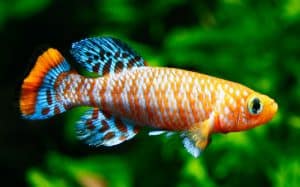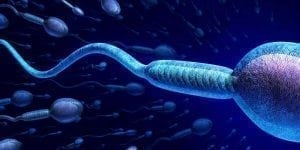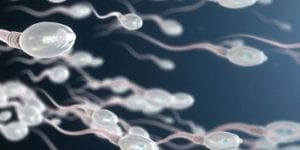Researchers have discovered that germ cells, which develop into eggs and sperm, cause sex-dependent differences in the lifespan of vertebrates. Female and male germ cells increase or decrease the lifespan. These effects are controlled by estrogen and growth factor hormones in females and by vitamin D in males. Vitamin D supplementation increases lifespan in both males and females. These results highlight the link between reproduction and ageing and show that vitamin D can improve the longevity of vertebrates.
Sex-Dependent Differences in Life Expectancy

Women live longer than men. This applies not only to humans, but also to many other animals. Biologists have theorized that the difference in life expectancy between the sexes may be partly related to reproduction, but how? In a study published in the journal Science Advances, researchers from Osaka University have discovered for the first time that germ cells, the cells from which egg cells develop in females and sperm cells in males, are responsible for sex-dependent differences in life expectancy in vertebrates. The researchers investigated the ageing process in the turquoise killifish, a small, fast-growing freshwater fish with a life expectancy of just a few months. As in humans, the females of killifish live longer than the males. However, when the researchers removed the gametes from these fish, they found that males and females had a similar life expectancy.
After the removal of gametes, male killifish lived longer than usual, while the lifespan of females became shorter. The researchers wanted to understand how gametes could affect males and females so differently. The next step was to investigate the factors responsible for this. The team found that hormonal signaling was very different in females than in males. Female killifish without gametes had significantly less estrogen signaling, which can shorten lifespan by increasing the risk of cardiovascular disease. The females also had significantly more growth factor signaling (insulin-like growth factor 1). This caused the females to grow larger while suppressing signals in the body that are important for maintaining health and slowing the aging process.
Vitamin D Can Improve Longevity
In contrast, the male killifish without gametes exhibited better muscle, skin and bone health. Interestingly, these fish showed increased levels of a substance that activates vitamin D, as well as evidence of vitamin D signaling in their muscles and skin. Vitamin D can also be considered a hormone; while it is known to keep bones strong and healthy, it also appears to have wider beneficial effects on the body as a whole. The team’s findings pointed to the possibility that vitamin D can improve longevity, which led them to test whether vitamin D supplementation could extend the lifespan of fish. When the researchers administered active vitamin D, they found that the lifespan of both males and females increased significantly, suggesting that vitamin D signaling throughout the body has positive effects on health. This work suggests that vitamin D signaling may influence longevity in other vertebrates, including humans.
The discovery that germ cells influence male and female longevity in opposite ways is an important clue to unraveling the mysterious interactions between reproduction, aging and lifespan. It is unclear exactly how vitamin D fits into this puzzle, but it could be part of future strategies to extend a healthy lifespan.




